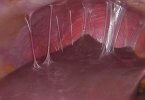What's in this article?
Benign fasciculation syndrome (muscle twitch) is a neurological disorder that affects parts of the brain, spinal cord, and nerves. Neurological disorders in general can be mild or quite severe, depending on their cause. In some cases, neurological disorders are not associated with another condition. In benign fasciculation syndrome, the muscles rapidly contract and relax, causing the muscle to twitch. It is considered a less severe but highly annoying neurological disorder.
Benign fasciculation syndrome (BFS) is the occasional or nearly continuous twitching of voluntary muscles. There are many reasons for muscle twitches ranging in severity, including multiple sclerosis and ALS. In BFS, the cause is often not serious and not associated with a disease, disability, or injury, hence the term benign. Even though the cause may not be serious, it doesn’t change the fact that it can be quite annoying to live with.
Benign fasciculation syndrome symptoms
Symptoms of BFS are most commonly noticed when a person is at rest. BFS can move from one muscle area to another. Symptoms of BFS include:
- Overall fatigue and pain in the affected muscles
- Anxiety as a result of not knowing what is causing the twitch
- Intolerance to physical activity
- Sensation of having lump in throat can be a result of anxiety
- Numbness or tingling of the affected muscles
- Cramps of the muscles
- Exaggerated tendon reflexes
- Tremors or itchiness
- Sudden muscle contractions
- Muscle stiffness
- Twitching
What are the “Benign” Causes of Fasciculations?
It’s important to understand that a fasciculation is less commonly related to a serious neurological illness like amyotrophic lateral sclerosis (ALS), which slowly robs people of their ability to move. More common causes of fasciculations include too little sleep, too much coffee, anxiety, stress, cigarette smoking, or strenuous exercising. There is also a wide number of medications like Benadryl (diphenhydramine), Sudafed (pseudoephedrine), corticosteroids, or lithium that may cause fasciculations.
The physiological cause of these fasciculations is unknown. Even the source within the nervous system is a point of fasciculation. As suggested by the wide array of symptoms, the term “benign fasciculation syndrome” should likely be pluralized, as there’s probably several different causes to those fasciculations.
Diagnosing Benign Fasciculation Syndrome
Patients typically whave a history of twitching that is worsened by anxiety or overexertion. Diagnosis of benign fasciculation syndrome is made by excluding other possible causes for muscle twitching like Lyme disease neuropathy, ALS, multiple sclerosis.
A detailed neurological examination in benign fasciculation syndrome can reveal brisk reflexes (hyperreflexia). Electromyography (EMG) is an important diagnostic tool. Since benign fasciculation syndrome is not associated with any real nerve damage, the EMG appears normal or a fairly normal. BFS should only be diagnosed once other neurological disorders have been excluded. A change in the symptoms, including development or progression of weakness should prompt repeat investigations including EMG to rule out ALS.
Natural remedies for benign fasciculation syndrome
Natural remedies can be used to treat BFS and reduce symptoms associated with the condition in order for you to live a normal life all the while reducing stress. Here are some of those natural remedies you can try in order to treat your BFS.
- Develop a stress management routine either with yoga, breathing exercises, or essential oils.
- Eat well and exercise regularly.
- Try getting a massage and opt for an aromatherapy massage for added stress-reducing benefits.
- Eat fruits and nuts rich in magnesium like bananas, avocados, leafy greens, and dark chocolate.
- Reduce caffeine intake.
- Take Epsom salt baths.
If BFS is overtaking your life, speak to your doctor about other treatment options you can benefit from.
How are Fasciculations Treated?
Regardless of the cause of benign fasciculation syndromes, symptoms can likely be exacerbated by the same things that provoke fasciculations in anyone else. Ensure that caffeine intake is limited, that sleep quality is good, and that there are no medications being taken that could worsen symptoms. Sometimes stress worsens fasciculations, and this can be managed through a variety of techniques. Some medications such as beta-blockers, magnesium, or anti-epileptic medications have been tried with varying degrees of success.






Leave a Comment